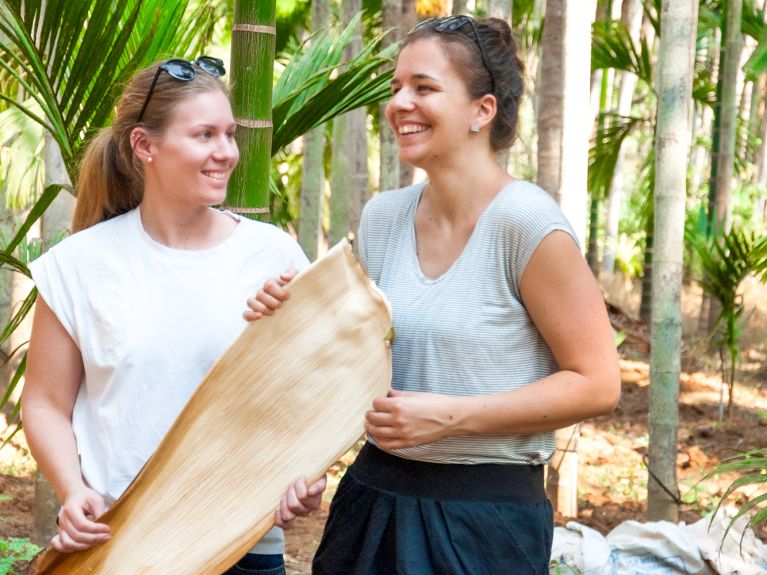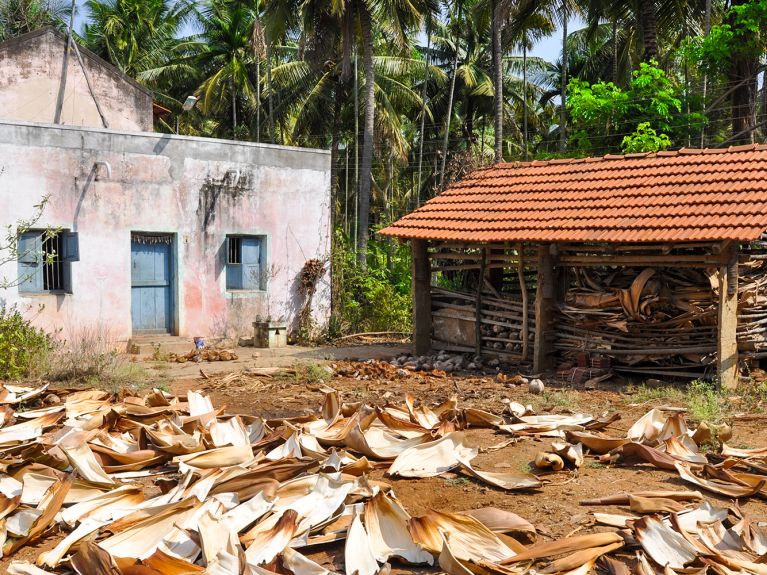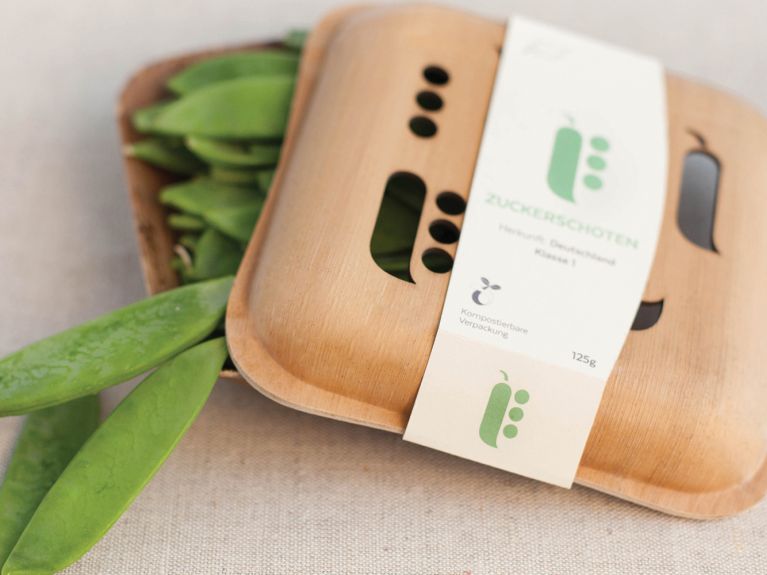Fighting waste with waste
A Berlin start-up has created environmentally-friendly packaging using areca palm leaves from India.

The idea is as simple as it is persuasive: the leaves of the areca palm are softened and pressed into a mould using heat and pressure. What comes out – using very little water and energy and no chemical additives whatsoever – is attractively-shaped packaging that can also be used as a serving bowl or lunch box. And when no longer needed, it can be chucked into the organic waste bin and will become soil in just 60 days.
The story behind it involves two Berlin students who set off in 2014 to spend a semester in India on a DAAD scholarship. Budding product designers Alexandra Matthies and Nicole Plock had already been interested in the subject of packaging beforehand. “But it was only there that we realised just what a massive global problem plastic actually poses”, recalls Matthies. “Packaging waste is strewn all over the streets there, and often there is no effective refuse collection system.”

We had seen in India how the leaves are turned into plates by means of a very simple process.
At the same time, the pair also discovered that simple methods are used in India – especially in rural areas – to create packaging from natural materials. They were particularly impressed by the way leaves of the areca palm, an agricultural by-product, were turned into a kind of natural disposable bowl in which to serve portions of food. For their bachelor’s thesis they were tasked with creating a prototype for packaging made of natural materials – so it was an obvious choice for them to use the large, fibrous palm leaves. “We had seen in India how the leaves are turned into plates by means of a very simple process”, says Matthies. They then baked their first areca packaging themselves, using a wooden mould in their oven at home.

They fine-tuned the design for their final presentation at the University of Applied Sciences (HTW) in Berlin and met with such an enthusiastic response that they decided in 2018 to start their company, Arekapak. “On the one hand, we wanted to establish a sustainable packaging material in Germany that had previously been paid virtually no attention, while on the other it was important for us to make a contribution to economic development in India”, explains Matthies.
They hope that Arekapak will score well in the marketplace for its combination of functionality and appealing design – something that many types of natural packaging currently lack, says Matthies. Another benefit in their eyes is the multifunctional nature of their product. With its decorative wood-like appearance the packaging also makes for good serving bowls. In addition, it is oven-proof. “You can quickly roast vegetables or even bake a cake in it.”
Although Arekapak is still in its infancy and will need to overcome a number of further hurdles before it becomes a mass product that functions well in the food industry, it is already clear that the sector is highly interested in the product. Many believe that using the sustainable and attractively designed packaging will give them a genuine competitive edge. In the talks that Plock and Matthies conducted for the purposes of market analysis, they also discovered that even discount supermarkets nowadays are under noticeable pressure from their customers to address the issue of sustainability, so they are open to new solutions.
The big challenge for Arekapak is to ensure the production of sufficient quantities. Because they are selling disposable products, they would need to guarantee a continuous supply of the required volumes once they had landed a customer with considerable demand. “We are still taking it step by step for now”, says Matthies. “The social aspect of the project is very important to us, so we want at all costs to avoid overburdening our Indian partners.”


